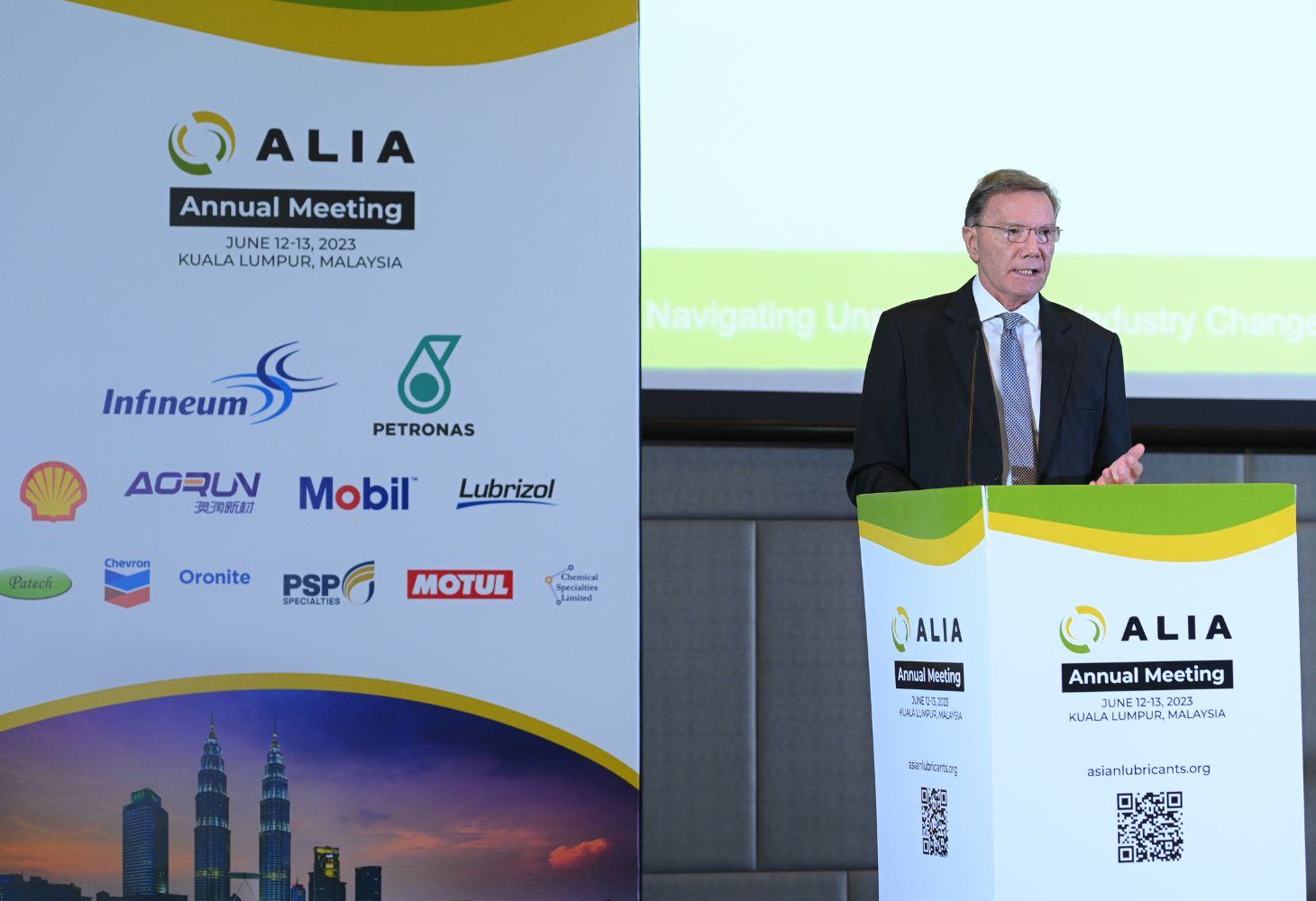
Political divisions undermining global solutions for energy transition
Steve Puckett, OBE, and co-founding director of the Asian Lubricants Industry Association (ALIA) provided the keynote address at the ALIA Annual Meeting at the Four Seasons Hotel in Kuala Lumpur, Malaysia on June 12, 2023. During his speech, the chairman of Singapore-based consultancy TRI-ZEN International, outlined unprecedented threats facing the Asian lubricants industry. While the scale of these challenges is growing, political divisions continue to undermine global solutions, says Puckett.
In his address, Navigating Unprecedented Industry Change, Puckett reiterated the impact of geopolitical tensions on business performance. Major powers are moving down individual paths on trade and technology for security reasons. Puckett noted the impact of Russia’s war on Ukraine and the continued deterioration in U.S. and China relations—with diplomats on both sides simply trying to contain this decline. We are entering a deepening crisis where national politics undermines global leadership, says Puckett.
This geopolitical upheaval is highlighted in continuing disruption to global supply chains. Businesses are struggling to control the end-to-end product supply chain, placing stress on core businesses. Puckett underlined a likely increase in turbulence moving forward and the need to urgently restructure businesses to optimise resilience.
Disrupted supply chains are impacting inflation. Puckett lamented an acceleration in inflationary pressures not seen in the past 40 years. He stressed the need for lubricant businesses to identify and mitigate the risks to business and to take action to limit external cost increases and improve capital structuring.
Puckett also outlined the growing occurrence of increasingly sophisticated cyber threats alongside the digital transformation and current global turmoil. Asia Pacific is at the highest risk, enduring more than 30% of cyber-attacks. Organisations need to urgently analyse the potential impact on their business and implement precautions.
Climate change continues to be the biggest risk, and there is a compelling need for change, says Puckett. However, he noted the difficulties in balancing the need for energy security and the energy transition. No government is going to allow their energy security to be compromised. Creating affordable, reliable and sustainable energy is a “remarkable challenge,” he says.
High growth in renewables does not give a factually complete picture, says Puckett. All forms of energy are rising, and coal and oil continue to be larger than all other energy sources combined. Oil demand is expected to rise to 102 million barrels per day (bpd) by the end of the year, before beginning to plateau and eventually decline. Puckett outlined a continuing need for oil and gas, which requires significant infrastructure. The question is, can we produce the amount we require without additional investment?
Puckett noted that most banks are no longer lending to oil and gas projects, with the flow of capital shifting to the energy transition. However, the developing world needs affordable electricity, and currently coal provides it. Asia’s coal accounts for 13% of all emissions globally, says Puckett.
When it comes to electric vehicles, China has taken the initiative and is buying access to resources. China currently controls more than 50% of the critical materials for manufacturing electric vehicles (EVs). However, Puckett stressed that there is extreme price volatility in EV materials, and he believes material costs will continue to be a significant challenge for these new energy vehicles in the future.














